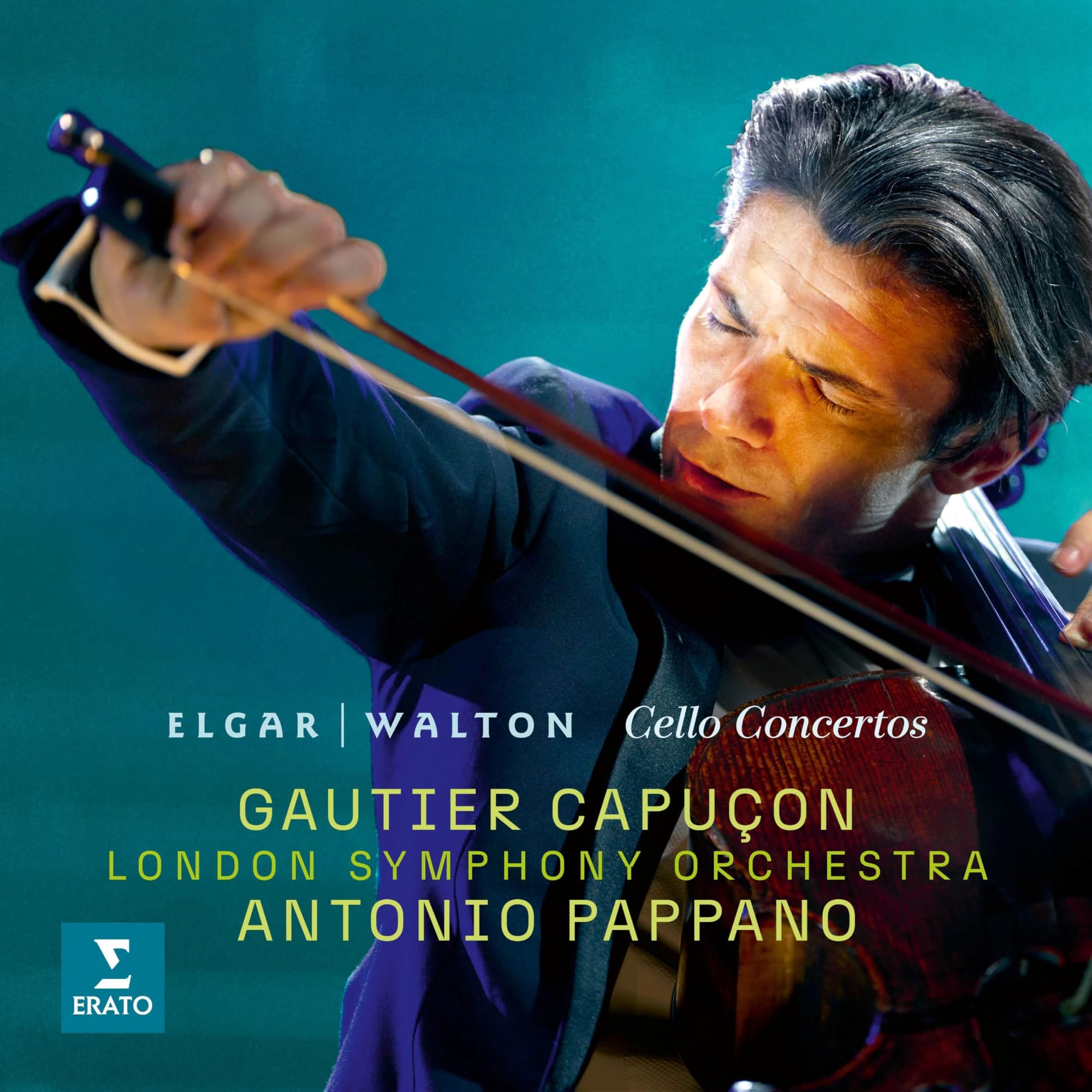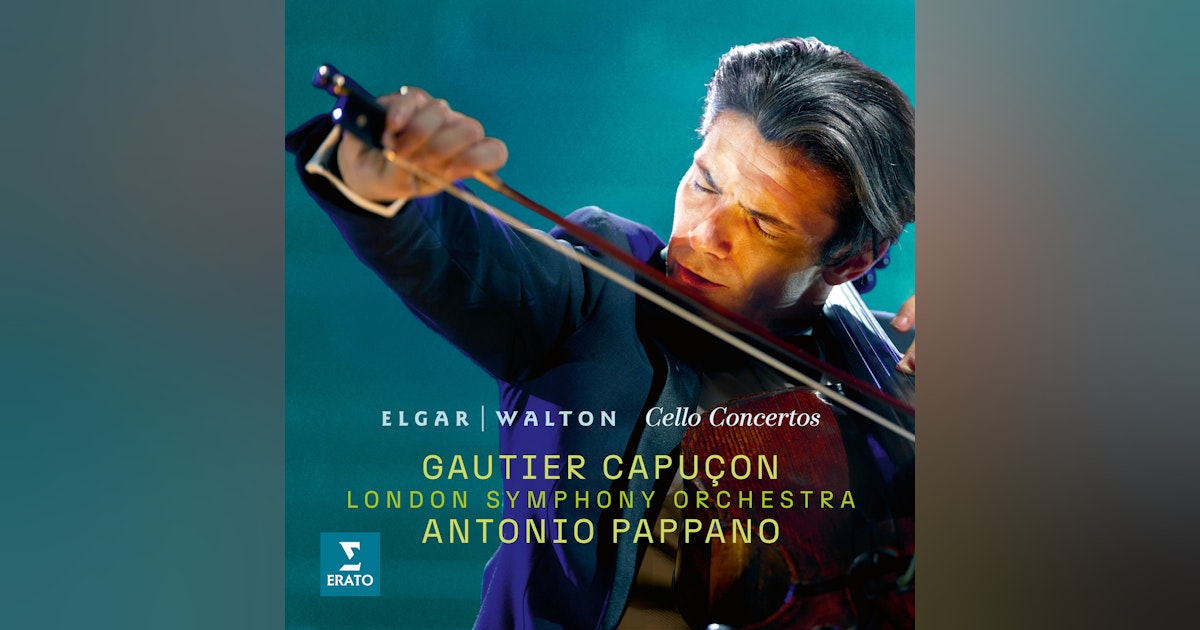
In his role as Artist-in-Residence at the Dresdner Philharmonie, I heard Gautier Capuçon in the Kupturpalast in Dresden in September 2023. The orchestra was conducted by Kahchun Wong, the Principal Guest Conductor there and now the Music Directo of Manchester’s Hallé Orchestra (review).
I mention this as Capuçon played the Elgar Cello Concerto on that occasion, as he does on this new Erato disc (here partnered with the London Symphony Orchestra under Sir Antonio Pappano). I mention it also because I preferred Wong’s conducting to Pappano’s. Pappano dots the i’s and crosses the t’s, but Wong had more depth, which matched Capuçon’s heart-on-sleeve interpretation all the more.
The Erato recording is good but not of the finest rank, too: the cello is mightily imposing in the opening, but part of that is the spotlighting. . This is big-boned stuff, and for me the highlight is the Adagio, hushed, emotional, beautiful. There’s actually a film of this, or follow this link for the non-visual transfer of the recording:
Pappano launches the finale with all the energy of Cockaigne Overture, but with a touch of added grit; Capuçon’s response is open-hearted. There is detail aplenty, too:
Walton’s Cello Concerto is very different from Elgar’s. It begins with a kind of “tick-tock”against which the cello songs an acidic, pungent line. The harmonies have more Bute in Walton; The Elgar and Walton Cello Concertos are natural bedfellows, beautifully complementary. Here’s that first movement:
Writen-in 1956, it is dedicated to its commissioner, Gregor Piatigorsky (who created the work in Boston, with Charles Munch). There is an interest rupture in that the first movement is followed by a kind of Scherzo, but one minus Trio. It does contain lyric contrast, though, nicely made by Capuçon. What is utterly remarkable is how on the ball the orchestra is here under Pappano:
Nothing can prepare one for the heartfelt melody that opens the finale, which is a theme and four “improvisations”. And how Walton’s scoring glistens here, sop beautifully.
Capuçon is magnificently expressive in his cadenzas (closely but not claustrophobically recorded).
Incidentally, here is the Warner Classics promo video for this release:
… and here’s the Piatigorsky recoding, on RCA with Boston and Munch. It was recorded one day, January 28, 1957, just after the premiere. This is a transfer found on the web, but I would say that it is Andrew Rose’s transfer over at Pristine Classics that is the one to have, it has so much more life and presence, reflecting Piatigorsky’s approach.
You can buy the Piatigorsky from the Pristine Classical website here. The Capuçon/Pappano is available at Amazon here. Amazon is offering a whopping 6% off at that link. Streaming below.









.jpg?w=160&resize=160,160&ssl=1)
